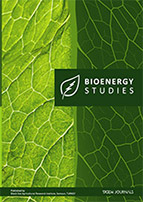Fishers Perception and Attitude Toward Local Knowledge and Local Practices and Its Role in the Fisheries Management: a Case Study in Mae Klong River, Samut Songkhram, Thailand
2 Diponegoro University, Faculties of Fisheries and Marine Science, Semarang, Indonesia
3 Sultan Qaboos University, College of Agriculture and Marine Sciences, Department of Marine Science and Fisheries, Oman DOI : 10.4194/1303-2712-v15_4_02 Viewed : 4982 - Downloaded : 6739 An understanding of traditional local knowledge and practices is widely viewed as critical for the establishment of sustainable local fishery management. Locals’ perceptions of governmental fishery regulations, the use of local knowledge and local practices in fishery management, and fishers’ attitudes toward cooperation with the government are of particular interest.
The objectives of this research were to identify local knowledge and local practices in the fishing community in the vicinity of the Mae Klong River, KlongKone Sub District, SamutSongkhram, and to determine the fishers’ perceptions about fisheries regulations and the use of local knowledge in fisheries management.
An Institutional Analytical Design Framework (IAD) approach was used to evaluate how a management institution should be designed, by combining participation from local knowledge and local practices and government or other concerned authorities. Two different types of methods were used for field data collection. The first was interview and discussions with key informants (120 fishers) and the second method was dialogue between formal and informal actors. (10 participants, representing each villages, government official and other related organizations in the vicinity of Mae Klong River, KlongKone Sub district, SamutSongkhram).
The study demonstrated that local knowledge and local practices by local community may affect traditional communitylevel agreements. An example could be taken from the case of local knowledge in the form of beliefs regarding the role of deities in protecting fishers from harm and the practice of securing blessings for better catches can be used to regulate the use of mangrove forests and other fishery resources. Local communities in Mae Klong River believe and respect the spirit of deities, in the form of The Goddess of River (locally known as “Phra Mae Kong Ka”), which is believed to be the protector of the waters resources and hence will punish the one who violate the River. Local knowledge, in the form of relation between spiritual and material which are still believed by local community, could be a basis for conservation. On the other hand local practices also applied by local community which some of the regulation had been assimilated with the government regulations.Mae KlongRiver Fishers believe that a combination of local and governmental regulation will increase the acceptance of fishing regulations and therefore be more suitable for local fishery management than government-imposed regulation.
Government’s support in the form of legal framework is an important point, as well as that decision on the fishery management plan should be made by the community, not only by the central or provincial authority alone.
Keywords : Fishery managements, local communities, local knowledge and practice, fishers’ perception, fishery comanagement















